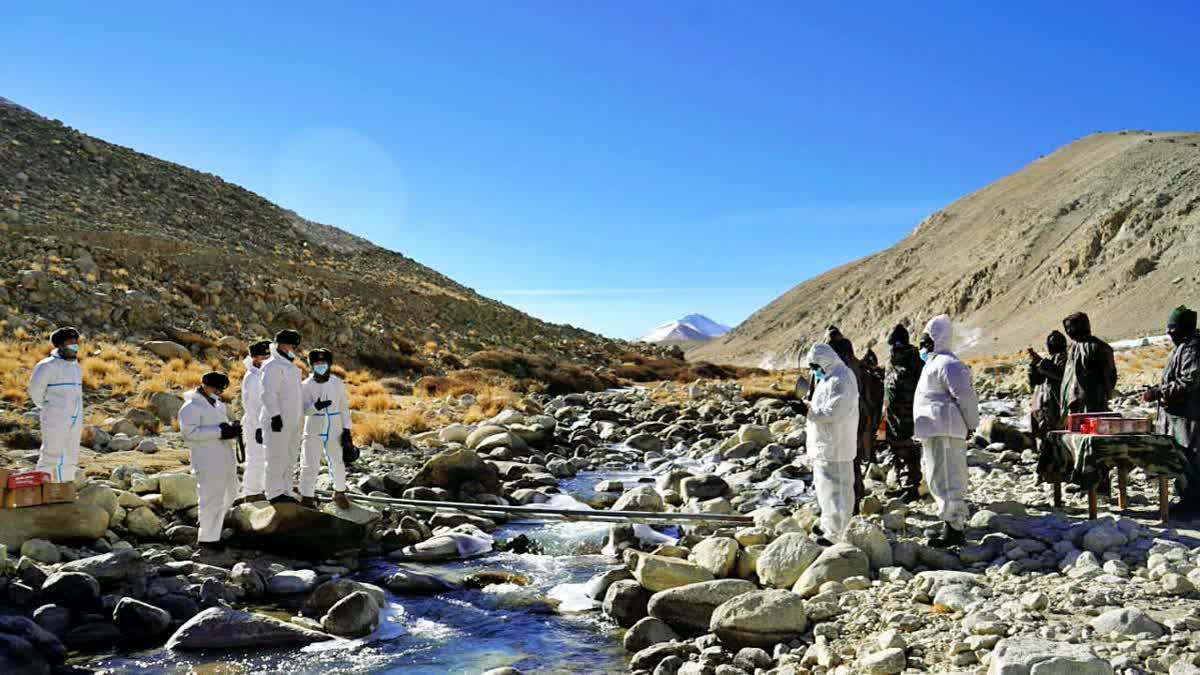New Delhi: For years, India and China have engaged in military skirmishes leading to strained relations. Now that Indian and Chinese soldiers have completely pulled out of the Depsang and Demchok regions, it is important to assess this development. Should India agree with Xi's proposals this time, helping to achieve a permanent solution to the border issue? Can China be trusted yet?
A defence expert says that this retreat is strategic, with China biding its time, waiting for the right moment to resume its expansionist efforts. Terming it a temporary truce and not a victory to celebrate, Defence expert Major General (Retd) SP Sinha, in an exclusive conversation with ETV Bharat said India must be ready to counter China's attempts to move forward with its expansionist agenda.
"This retreat is strategic, allowing China to wait for an opportune moment to reassert its ambitions. Once a favourable political situation arises, China will likely resume its expansionist activities. Therefore, any current calm should not be mistaken for a lasting peace. We must remain fully prepared—militarily, politically, and in terms of leadership—to ensure that China does not attempt to advance its agenda," Sinha said.
According to him, China is a nation that "lacks reliability", with historical evidence supporting the assertion. "The country has consistently adhered to a policy of advancing two steps while retreating one. This expansionist approach has been evident since the era of Mao Zedong, who asserted that China should aspire to be the foremost global power. This ambition has given rise to China's expansionist strategies, characterized by a salami-slicing technique and the aforementioned two steps forward, one step back policy," he said.
The defence expert said whenever China faces pressure or adversity, it tends to withdraw temporarily, biding its time until it can regain its footing and reassert itself.
"Understanding this aspect of China's behaviour leads me to conclude that I have no trust in the nation. Despite China's frequent signing of agreements, it has a poor track record of honouring them domestically. This situation is unlikely to change," Sinha said.
He explained that currently, China finds itself in a precarious position, particularly with the emergence of India as a significant international and military power. "Consequently, China has little option but to retreat, which I view as a tactical withdrawal".
"A permanent resolution will only come if China acknowledges our international border, but even then, China may not adhere to it in the future. This shift happened under pressure. China and Pakistan cannot be trusted, and this is a crucial point to understand. Therefore, India must remain vigilant. How should India prepare for this situation? What should be our approach? Should we aim for better relations moving forward? Our strategy regarding China needs to be multi-faceted", he said.
Major General SP Sinha said that on a domestic level, India needs to focus on a direct economic relationship. "By impacting China economically, we can gain leverage. Money plays a significant role; with financial resources, we can defend ourselves, manoeuvre strategically, and acquire military equipment."
The former Army officer, however, called the recent India-China disengagement an "important development", while noting that the political leadership, especially Prime Minister Narendra, deserves recognition for influencing China to change its stance and retreat. "However, the question remains: will this solution last? The answer is no; it is not a lasting solution," he said.
Read More



